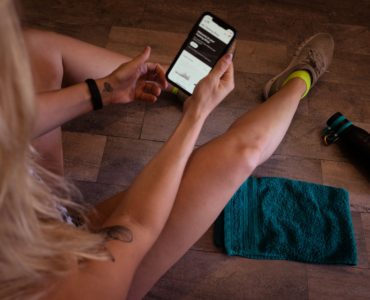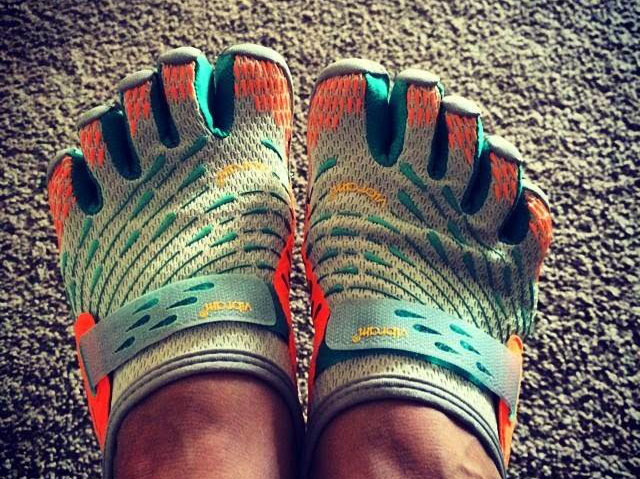Vitamins for Vegetarians: A Guide to Staying Healthy Overseas
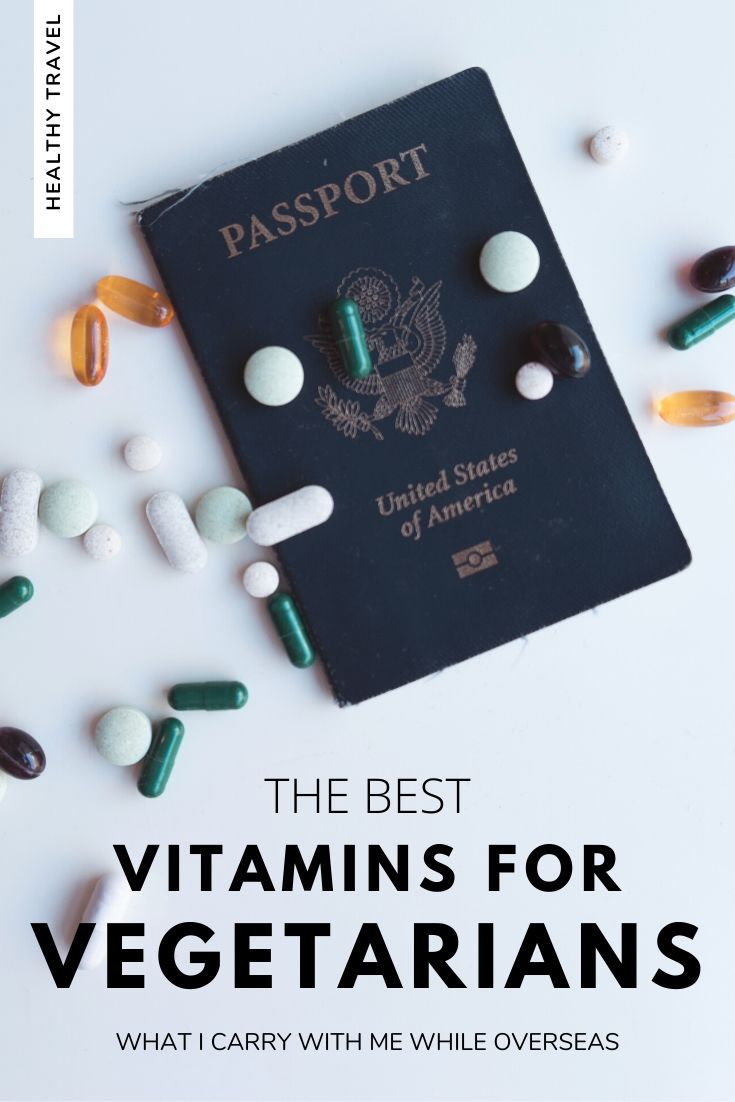
If you’re on a plant-based diet (or thinking about making the switch) and planning any future travels, one of the things that will probably cross your mind is what type of food options you’re going to have overseas. Especially if you want to stop in any meat-loving countries or rural villages.
You won’t find a veggie burger on the menu in most parts of the world. You’ll probably have to explain 100 times that fish is technically meat. And, your favorite supplements and vitamins for vegetarians probably won’t be available in the local pharmacies.
But, the truth is, sticking to a vegetarian or vegan diet while traveling is possible. It definitely takes more work. And you should ask yourself some questions like, “am I willing to miss the local traditional dishes because of my values?”, “am I willing to do a little extra cooking while traveling?” and “what vitamins should vegetarians take?”
For me, the first two are a big “YES”.
And the last one?
After some light research, it became clear to me that a daily multi-vitamin wasn’t going to cut it if I wanted to do this vegetarian/full-time travel thing right.
Right meaning feeling good, maintaining my weight, being able to hike and bike without being light-headed and even building muscle when I work out at the gym. A tall order, I know. I’m nothing if not ambitious.
Why do vegans and vegetarians need to take vitamins?
Well, for starters, there are some things that simply can’t be found in large quantities in vegetables. Period. Like, B12, collagen, and omega-3. It’s not a point of discussion really, it’s just something that’s known. I personally think (though I can’t claim to know) that’s why people think that vegetarians and vegans are going to be nutrient deficient and frail.
And honestly, if you’re not consistently getting the micronutrients you need, you might be.
Personally, I have a family history of medical complications and both my parents had cancer at a young age. I myself was overweight as a child and started developing intense anxiety and IBS. So, the importance of health became clear to me early on.
In college, I lost close to 40 pounds, overcame my fear of feeling out of place at the gym and started watching cooking Youtube videos.
After college, my health journey continued. I went vegan and then shifted to vegetarian in order to make traveling a bit more enjoyable.
Since I work remotely and travel full time, having a diet and routine that’s sustainable was really important to me.
And I’ve dedicated a lot of time over the last five years to figuring out exactly which supplements and vitamins I need as a vegetarian. I also see a nutritionist every 6-8 weeks and do a yearly blood panel every year to check my vitamin levels.
A couple weeks ago, I met a couple in a cafe that mentioned traveling in a meat-loving country like Argentina and thinking about going plant-based is hard. Plus, they didn’t really know what vitamins vegetarians should take.
I get it, everything is confusing.
And most of the blogs/articles are written by the companies trying to sell you their own vitamins for vegetarians (or totally wrong dosages). And none of it is all in one place. Compounding the issue is travel. If you’re a long-term Digital Nomad or vegetarian traveler it’s not easy to get some of these in a foreign country. Nor is it realistic to use valuable luggage space to carry a small pharmacy in your bag.
Instead of hoarding my research, I thought it may help some other people who are wondering about vitamins for vegetarians.
This is long and can be tricky. Use the table of contents to jump to the info you want most. I cut to the chase and include all the recommended vitamins at the top for you. Then the sections below include the quick, need to know facts about the more vital/popular vitamins for vegetarians and vegans. Things like amounts, best sources, what time of day to take it and what to take each on with to boost absorption.
The longer descriptions about what vitamins vegetarians should take are below, for the nerds like me that weren’t satisfied with bullet points.
What vitamins should vegetarians take?
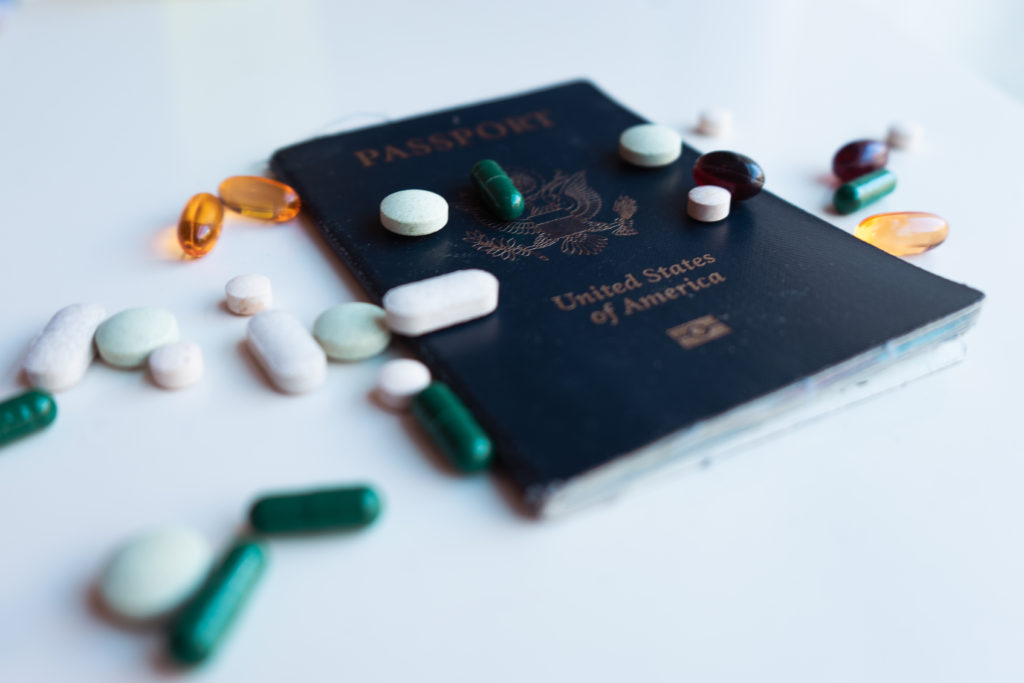
After almost one year of being vegan, four more of being vegetarian and hours upon hours of research, these are the vitamins for vegetarians that I’ve whittled it down to.
All the numbers are daily Recommended Dietary Allowances (RDA) from the CDC, not dosages. This is important to think about because you may be getting some from your diet as well. So, you should take a lower dosage. I also put them here because one thing it seems the supplement industry is particularly guilty of is packing their vitamins with waaaay more than you need.
I’ve seen calcium pills boasting 10,000 mg per pill, nevermind many studies and reputable medical sites say your body can only absorb 500 mg at a time.
They do this because they think that people think more is more. And you’ll shell out for them.
Upon even further research, I also learned that some of these vitamins will actually fight with each other for absorption. Meaning, if you take them together or in a combo pill, it’s basically like you didn’t take them at all. AKA throwing your money right into the toilet.
Anyway, I digress.
The most popular vitamins for vegetarians
The ones in bold are the ones I take – even while traveling.
- B12 (2.5 mg)
- Calcium (1000 mg)
- Vitamin D (15 mg)
- Magnesium (320 mg)
- Omega 3 (200-300 mg)
- Zinc (8-11mg)
- Vitamin C (75-100 mg)
- Iron (15 mg)
- Vitamin K (90 mcg)
- Iodine (150 mcg)
- Selenium (60-75 mcg)
- Probiotic (1-10 billion CFU)
- Proteolytic Enzymes (varies)
Extra supplements to consider
These are added “bonuses” that I’ve read up and rotated into the circulation throughout the years. The amounts are in dosages, not daily values.
- Turmeric (500-2,000 mg) or Curcumin, a more concentrated extract (6-100 mg)
- Spirulina (5 g)
- Collagen (2.5-10 g)
- Folic acid (400 mcg)
- MCT oil (1 TBSP)
That’s one big pill to swallow. Literally.
So, I did some research and picked what was the most important for me – including which animal-only supplements I was willing to take to ensure my body is in tip-top shape.
Vitamin B12
- How to take it: in the morning with food
- How much to take: 2.5-10mg
- What it does: gives you energy and may help your nervous system
- Without B-12, you might feel some scary symptoms dizzy, week, have blurred vision, digestive issues, a decline in memory, depression, anemia and more.
There are no plant-derived foods that contain enough B12 to meet your daily needs. In fact, it’s the only vitamin that can be reliably absorbed from a vegan or vegetarian diet. Most articles about vitamins for vegetarians include B12 for this reason.
Vitamin B12 foods for vegetarians
The Vegan Society recommends eating fortified foods to get your B12, taking one daily B12 (10 mg min) supplement or a weekly B12 (2,000 mg min) supplement.
Here are some of the foods:
- Dairy products
- Whole eggs (you can’t just eat the white!)
- Nutritional yeast
- Nori
- Shitake mushrooms
- Yogurt
- Cheese
- Fortified vegetable milk (it needs to say this on the label)
Calcium
- How to take it: take calcium carbonate with a meal at night
- How much to take: 500 mg at a time, up to 1000 mg total
- Your body won’t effectively absorb more than 500 mg at a time
- What it does: helps supply your bones and teeth with an essential nutrient
- Safe to take with magnesium in a combo pill
- Vitamin D helps absorption but is best taken in the morning. So, you could take one calcium pill in the morning with your D3 and one at night with your magnesium
- Do not take it with zinc
Calcium confuses me. Not because I don’t know what it does – you need it for your chompers and strong bones, obvi. But because of the different forms and how readily your body absorbs each one.
The Mayo Clinic breaks it down for us (the bullet points are taken from this article).
- Calcium citrate (21% elemental calcium) – recommended
- Calcium gluconate (9% elemental calcium)
- Calcium lactate (13% elemental calcium)
- Calcium carbonate (40% elemental calcium) – bad for digestion
Vegan and vegetarian food sources of calcium
- Dairy products
- Tofu
- Broccoli
- Kale
- Fortified vegetable milk
Vitamin D3
- How to take it: take it in the morning with a high-fat meal or snack
- Studies show a 32% higher absorption rate when you do
- How much to take: 15 mg
- What it does: can give you energy, builds immunity and fights off seasonal depression over winter months. Also, helps your body absorb calcium in the food you eat.
It’s not just vegans and vegetarians who are vitamin D deficient – nearly 42% of the population isn’t getting enough – even though it’s primarily an animal by-product. Actually, the only way to get a vegan or vegetarian vitamin D is in fortified products.
Are there any sources of vegetarian and/or vegan vitamin D3? Well, one.
- Sunlight
Walk outside, put yourself under the rays of the sun and stand, lay or sit there for 30 minutes three times a week. This is an effective way to get vegetarian vitamin D3, even while wearing sunscreen, hiking, or drinking a craft beer and/or red wine with friends. So there you have it – you’re out of excuses.
Magnesium
- How to take it: take it at night with a meal
- How much to take: 320 mg
- What it does: there are some surprising benefits, but the most well-known is helping you regulate your sleep
- Can be taken with calcium at night.
- Women tend to be a bit lower in magnesium, and you can test your levels with a blood test.
I notice when I don’t have magnesium. When I lived in California, I would get a magnesium shot once or twice a month. WOW that baby would put me right to sleep and have me getting great zzz’s every night.
I also use a MiFit fit tracker and love watching how I sleep each night. I’m a bit obsessed. But I’ve also noticed I’m getting a lot more of that valuable deep sleep with my magnesium. So there.
Some vegetarian and vegan food sources of magnesium
These are just some – there are tons of vegetarian AND vegan options! Happy dance!
- Broccoli
- Squash
- Almonds
- chocolate
- Coffee
Omega-3
- How to take it: take early in the day with some food
- How much to take: 1-1.5 g of ALA and 200-300 mg of EPA/DHA
- Translates to 1 TBSP of chia seeds or 2 TBSP of hemp seeds
- Chia alone may not be sufficient and krill is ideal
- Needs to be taken in oil form – can be as a liquid or capsule
The critical thing to know about Omega-3 is that there are different types of it. This is going to get a bit science-y but I read through lots of publications like Nutra Ingredients to find this information and translate it into human speak. It’s important, friends.
First off, we have alpha-linolenic acid, or ALA. This is essential and not made by your body. So you’ve got to eat it – but it’s easy to find a vegan or vegetarian omega-3 source. Then you have their cousins, the long-chain EPA and DHA. These are important for a healthy heart. And only found in fish.
For a good amount of time, people seemed to be saying that your body will do its thing and turn ALA into EPA/DHA. And from what I see, that’s what vegetarian and vegan vitamin companies are still saying.
And it’s true – partially.
But the conversion from ALA into EPA/DHA done by your body can be as low as 8%. If you’re relying only on vegetarian/vegan-friendly ALA omega-3 sources, that translates to not enough EPA/DHA.
And so, this one’s a cheat for me. After a lot of research, I decided I won’t be rebuying my Vegetarian Omega 3 chia pills and will be a krill gal from here on out.
Omega-3 foods and vegan sources of ALA
- Chia
- Olive oil
- Walnuts
- Algae
Sources of EPA/DHA
- FISH – krill and salmon are both common sources
I even read articles like Team Tracks a Food Supply at the End of the World and Greenpeace’s Response to Whether or Not Krill Fishing is Sustainable. So, don’t tell me I’ve never spent an afternoon reading up on the health of krill colonies in the Atlantic.
Krill is currently not overfished (caveat here is that demand doesn’t balloon). It comes from the least polluted waters on Earth and is easily absorbed by our body. But it is also an important food source for the cute little penguins and the giant whales. So, we need to be careful and smart with how we use it and take it.
Zinc
- How to take it: take it with a meal, earlier in the day
- How much to take: 8-11mg
- It could cause stomach upset
- Do not take it with iron or calcium, which will decrease the absorption
This is one of those that are not abundant in the plant kingdom. But it does exist. I’m on the fence about whether I personally think I get enough in my diet. I suppose it probably depends on the day.
Vegetarian and vegan food options with zinc
- Beans
- Cacao (not cocoa!)
- Nuts
- Oats
- Nutritional yeast
Vitamin C
- How to take it: you can take it as needed and when you want
- How much to take: 65-100 mg
- What it does: vitamin C is known to boost your immune system and may help you feel better faster when you’re feeling sick
- It’s very difficult to overdose on vitamin C. It’s water-soluble and will pass through your body – but it could give you diarrhea.
When I was sick after traveling to Africa, I drank as many vitamin C packets as I humanly could to get better. Instead, I ended up with neon yellow pee for a week and diarrhea, on top of my existing infection.
Good food sources of vitamin C
It appears that this is a fairly simple one to knock out with a healthy diet – vegan, vegetarian or otherwise. And my chiropractor mother agrees. Think bright yellow and red fruits and veggies.
- Fruit
- Bell peppers
- Orange juice
- Broccoli
- Tomato juice
- Mango
- Lemon juice
Iron
- How to take it: take it any time after your morning coffee
- How much to take: 15 mg
- Vitamin C could increase absorption up to 5x
- Coffee and other caffeinated drinks decrease absorption
- Cast iron skillets ARE a source of iron and increase absorption
Like calcium, it’s better to get your iron throughout the day in small amounts. Absorption of supplements can be low – especially iron vitamins for vegetarians. It’s recommended that our intake be 1.8x higher because plant-based absorption is so low.
How to get iron into a vegetarian diet
Spinach may not be a good food source for iron. This was the most surprising thing I read during all my research on vitamins for vegetarians and No Meat Athlete explains that one for you. He also has some great suggestions that are good sources of iron, here:
- Legumes: lentils, chickpeas, soybeans, tofu, tempeh, lima beans
- Grains: quinoa, fortified cereals, brown rice, oatmeal
- Nuts and seeds: pumpkin, squash, pine, pistachio, sunflower, cashews, unhulled sesame, chia
- Vegetables: swiss chard, collard greens
- Tomato sauce and juice
- Other: blackstrap molasses, prune juice
Eat these foods and foods high in vitamin C for better absorption! Like a bean bowl with quinoa and broccoli.
Probiotics
- How to take it: 30 min before a meal with some fat
- How much to take: 1-10 billion CFU
- What it does: probiotics help restore the balance of healthy bacteria in your stomach, aiding with digestion. For women, they can also be beneficial for balancing the bacteria in our bodies during different hormone shifts.
- Probiotics need to be alive to be useful! Check your label and follow the instructions for storage and throw them out if you’ve reached the expiration date.
Doctors are testing the effectiveness of probiotics for IBS treatment and other stomach issues. But there are billions of strains that can help different issues. You’ll need to do a bit of your own research here to get the best probiotics for you.
Foods that contain probiotics
- Greek yogurt
- Kefir
- Kombucha
- Sauerkraut
- Seaweed salad
Generally speaking, anything that’s gone through the process of fermentation will be a good source of probiotics. However, they may not be the specific strains you need.
Collagen
Let me just say this: there is no known vegan collagen source.
I repeat collagen is not vegan.
It is vegetarian, as it’s an animal byproduct of bones. But, if you want to stay strictly vegan, you can only take something that boosts your body’s natural collagen production, like Organifi Glow.
Collagen is abundant in your hair, skin, nails, ligaments and bones. A lot of people take it for clearer skin, but there is some compelling research about how collagen helps with sports injury treatment and prevention as well.
MCT oil
This isn’t just something vegans and vegetarians are lacking. It’s something we. all. need.
In my opinion.
I first learned about MCT oil when listening to a biohacking podcast by Rob Greenfield. He seems like an ageless superhuman and it seemed easy enough to put a tablespoon of the oil into my morning coffee. So, I gave it a go.
Since then, MCT oil has really been having a moment. If you’ve heard of bulletproof coffee, you’ve heard of it.
The idea is that you can curb your cravings and supercharge your workflow by adding a tablespoon in your morning cup ‘o Joe. Just be sure to work yourself up to that amount because, well, it can really get things moving – especially when paired with coffee on an empty stomach. Buyer beware. But your body will adapt – it took me about a week. And then you’ll miss your super-charged mornings when you don’t have it.
It is really popular in keto crowds and is pure fat. So, just know it’s 100-200 extra calories you’re pouring into your coffee.
Other supplements
I’m not getting into the others, because they aren’t technically vital nutrients and kind of fall into the superfood hype. I included them on the above list because I started adding turmeric (which has been used for thousands of years to treat inflammation) to my golden milk and putting a scoop of spirulina in my protein shakes about a year ago and I just felt amazing.
If you really wanna get nerdy about these, email me and I’ll open my apothecary drawer for you.
How to buy vegan capsules
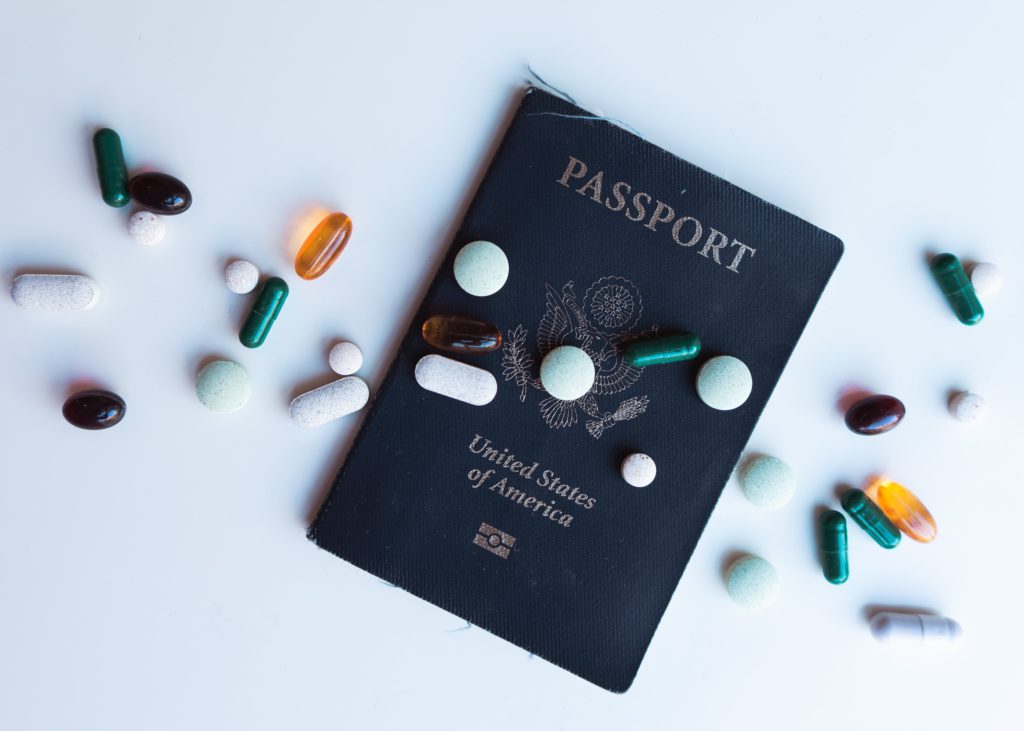
Quick note: if you’re strictly vegan, know that most of the clear or brown-is capsules (like the ones fish oil come in), are not vegan. Even if they are holding vitamins for vegetarians/vegans.
They use the same animal byproducts as gelatin.
While I’m traveling, I tend to get a little relaxed on this point. You simply have to pick and choose your battles. But, when in the US, I do take the extra step to see if I can find a vegan capsule.
Some vitamins for vegetarians – like D3, calcium, and magnesium are mineral-y looking and don’t have a clear coating.
Common culprits I’ve noticed of non-vegan capsules are D3, omega-3, and probiotics. D3 can be found without gel capsules. Since I cheat on omega-3 anyway (and it has to be taken as an oil that I can’t stomach the taste of), I don’t worry about that one. And probiotics can also be taken as a liquid.
Reasons I don’t take certain vitamins
I don’t particularly feel the need to explain myself here, but basically this boils down to knowing yourself and your body.
Traveling full time as a Digital Nomad also makes this a little trickier.
That means being picky. Making some tradeoffs. Working with my doctor to decide was was the most important for me and what I can probably get from my diet by eating certain foods.
Here’s the quick rundown:
To avoid spilling in my luggage, I avoid any oils and liquids. At home, I cook with a cast iron pan and, when traveling, I make sure I have some iron-rich foods with every meal. For calcium, I drink fortified almond milk with my daily protein shake. Fruits and carrots are my favorite thing to eat and snack on, so I’m not worried about my vitamin C or A levels. And I lived in California long enough to get an avocado addiction that will probably ensure I’m never short on vitamin K. Finally, I liberally salt my foods when cooking. I try to add at least half a teaspoon of iodized salt to my veggies, salads and/or eggs.
And that’s it!
There’s a whole lot of information here. And, while vitamins for vegetarians aren’t exactly a travel topic, my overall health and nutrition was something I researched a lot before traveling full time. I wanted to boost my immunity while being in foreign countries and keep my body as happy as possible while trying out all the new flavors!
A lot of people tend to gain weight while traveling. Or they adopt a local diet – which is often greasy or processed – and don’t feel like themselves. Worst case scenario, the local food is so different, you get sick.
The ideal thing is finding a way to enjoy yourself on vacation or while traveling, without needing a post-vacation vacation just to get yourself and your body back into your daily routine.
For me, the balance I’ve struck is not holding back when it comes to trying local foods and taste-testing street vendors. But, trying to cook 1-2 meals in my Airbnb or hostel, taking my daily vitamins for vegetarians, and trying to get in an at-home workout 3-4 times a week.
I’m always on the lookout for activities that will enhance my travel experience and get my body moving, like salsa dancing in Colombia, hiking in Patagonia, or even just popping into a gym for a week where I’m likely to meet locals. Some sports have a built-in culture with them as well, like boxing, CrossFit, basketball, and cycling. For example, there are tons of mind and body benefits of practicing martial arts (aside from feeling like a badass, which you will), and most dojos have a close-knit community that will feel like home when traveling.
I’m not a doctor by any means, but I hope this was helpful for you and gave you a starting point for more research or conversations with your doctor!
